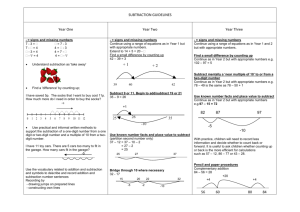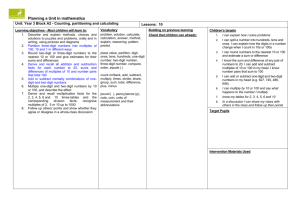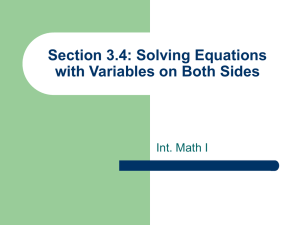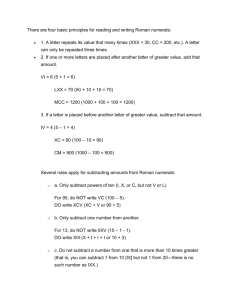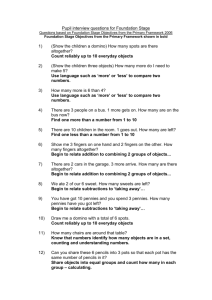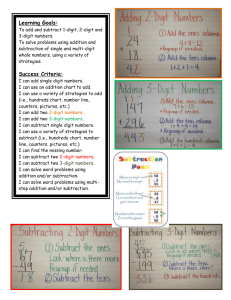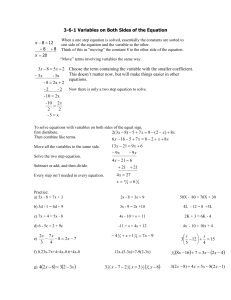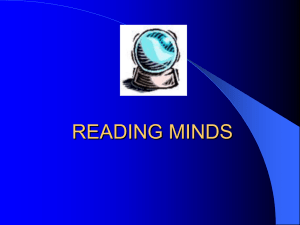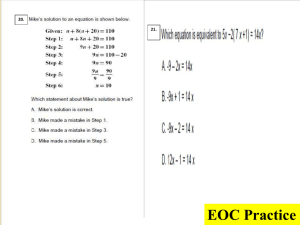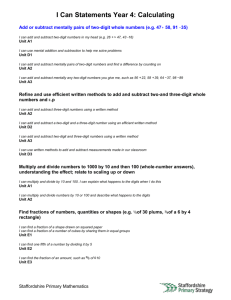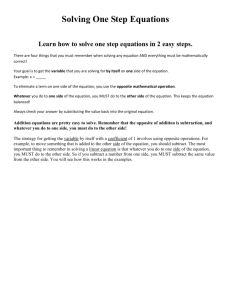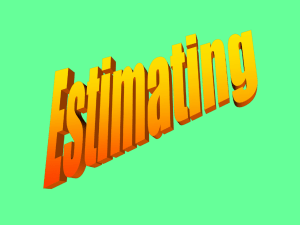Success criteria examples for Block D unit 2
advertisement
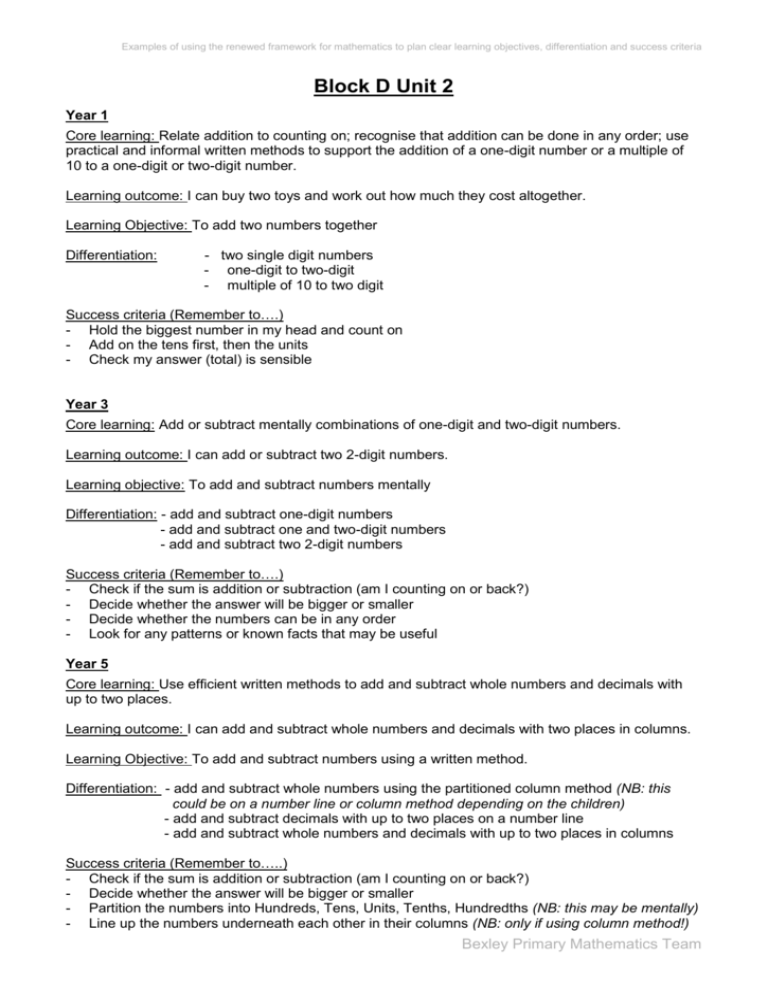
Examples of using the renewed framework for mathematics to plan clear learning objectives, differentiation and success criteria Block D Unit 2 Year 1 Core learning: Relate addition to counting on; recognise that addition can be done in any order; use practical and informal written methods to support the addition of a one-digit number or a multiple of 10 to a one-digit or two-digit number. Learning outcome: I can buy two toys and work out how much they cost altogether. Learning Objective: To add two numbers together Differentiation: - two single digit numbers - one-digit to two-digit - multiple of 10 to two digit Success criteria (Remember to….) - Hold the biggest number in my head and count on - Add on the tens first, then the units - Check my answer (total) is sensible Year 3 Core learning: Add or subtract mentally combinations of one-digit and two-digit numbers. Learning outcome: I can add or subtract two 2-digit numbers. Learning objective: To add and subtract numbers mentally Differentiation: - add and subtract one-digit numbers - add and subtract one and two-digit numbers - add and subtract two 2-digit numbers Success criteria (Remember to….) - Check if the sum is addition or subtraction (am I counting on or back?) - Decide whether the answer will be bigger or smaller - Decide whether the numbers can be in any order - Look for any patterns or known facts that may be useful Year 5 Core learning: Use efficient written methods to add and subtract whole numbers and decimals with up to two places. Learning outcome: I can add and subtract whole numbers and decimals with two places in columns. Learning Objective: To add and subtract numbers using a written method. Differentiation: - add and subtract whole numbers using the partitioned column method (NB: this could be on a number line or column method depending on the children) - add and subtract decimals with up to two places on a number line - add and subtract whole numbers and decimals with up to two places in columns Success criteria (Remember to…..) - Check if the sum is addition or subtraction (am I counting on or back?) - Decide whether the answer will be bigger or smaller - Partition the numbers into Hundreds, Tens, Units, Tenths, Hundredths (NB: this may be mentally) - Line up the numbers underneath each other in their columns (NB: only if using column method!) Bexley Primary Mathematics Team
